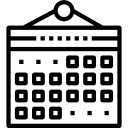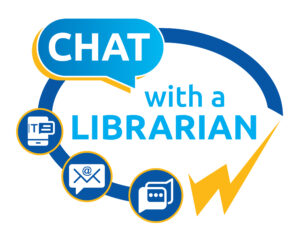
While researching the Bayne Family, we came across some valuable resources. Whether you are investigating your own genealogy or researching a figure from local history, there is so much to discover and so many options for you to explore.
Search Online
For a limited time you can gain home access to Ancestry.com through the link shown on Carnegie Library of Pittsburgh’s webpage with your library card number and your four-digit pin. Ancestry.com is a comprehensive source of information for conducting genealogical and local history research. The main difference between Ancestry’s Library Edition and a personal paid subscription is that the Library Edition does not enable you to build a family tree, however we have a suggestion for a free online family tree maker below.
John Heinz History Center Detre Library & Archives features a searchable digital collection allowing you to explore photographs, documents, books, and maps. The page of Historic Pittsburgh photographs will be of interest to anyone with ties to Pittsburgh.
The Historical Society of Pennsylvania is one of the largest family history libraries in the nation with collections on local and regional history, and offering a manuscript collection renowned for its 17th, 18th, and 19th century holdings.
The Western Pennsylvania Genealogical Society (WPGS) is organization of amateur and professional family historians and genealogists dedicated to the study and preservation of family history.
National Genealogical Society NGS recommends a list of free websites for genealogy research.
National Archives features a passenger search
To find local records, or records from around the world visit Archive Grid. Local options include Duquesne University Gumberg Library, Carnegie Library of Pittsburgh, University of Pittsburgh, and Carnegie Mellon University Archives.
Depending on what you are searching for you may also want to check out these local resources: University of Pittsburgh Archives Special Collections, Chatham University Archives & Special Collections, Pittsburgh History and Landmarks Foundation Archives, or Frick Art Reference Library.
Listen to Your Pennsylvania Ancestors Podcast episode featuring the Western Pennsylvania Genealogical Society and the The Pennsylvania Department, housed on the third floor of Carnegie Library of Pittsburgh. The podcast shares information about their research collections and services.
Special tip when searching online: CTRL-F or Comand-F can be helpful when searching for a name or specific term within a page or article.
Newspaper Search
Chronicling America allows you to search America’s historic newspaper pages from 1789-1963 or use the U.S. Newspaper Directory to find information about American newspapers published between 1690-present.
Cemetery Search
Find a Grave helps people from all over the world work together to find, record and present final disposition information as a virtual cemetery experience.
Billion Graves preserves precious records found in cemeteries throughout the world using modern technology to capture images of headstones with their GPS locations so users worldwide can access the records anywhere.
Nationwide Gravesite Locater allows you to search for burial locations of veterans.
Share in Style
PeoplePlotr offers an option for a free account where you can create interactive people plots that can be easily shared. It is perfect for creating family trees due to its adaptable format. We used this site to create the Bayne Family Tree.
Tiki-Toki Timeline Maker offers an option for a free account where you can create an interactive timeline that can be easily shared. We are used it to create the Bayne Library Timeline.
MyHeritage offers a free photo colorizing option. It’s incredibly easy to colorize and enhance your photographs.


Preserve Stories and Oral Histories
Think about the things you wish you could know about your ancestors, and create a plan to create and preserve information from your family so that in the future your posterity can discover you!
UCLA library created a Family History sample outline and questions.
Storycorps has a list of great questions to facilitate conversations.
Time Calculating Tools
Enter two dates and this Duration Calculator will tell you how many days, months, and years are there between the two dates.
Calculate a range of possible birth dates given an age.
Age calculator determines the age or interval of time between two dates.
Add or subtract time from a date with this simple calculator.
Translate Text
BableFish translates text of of one language to another language from text you may find in a document, on the back of a photograph, or on a headstone.
Obtain and Maintain Records
Learn where to write for records in Pennsylvania, and visit the clickable map to learn where to write for records every state in the United States.
Preservation: If you are fortunate enough to be the caretaker of valuable family photographs and records, the National Archive has shared information on How to Preserve Family Archives.
Please note that while visiting locations to research in person, it is best to contact the location in advance of your visit to learn about their visitation policy and procedures.
Thanks for checking out our Ancestry Resource page, you may also want to check out our Ancestry Booklist found in our Book Lists and Resource Guides.
Written 12/10/20 by Linda



